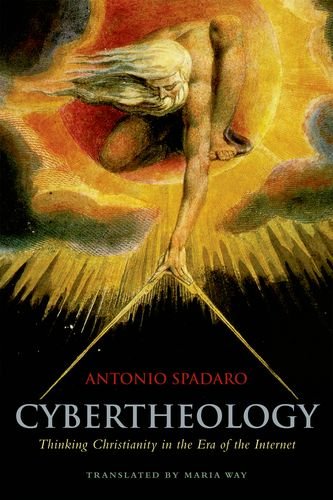
Since you are reading this, I’d like to ask you a question:
Do you have a philosophy or theology of using the internet, one that involves a little more sophistication than seeing digital media as the Whore of Babylon at the disposal of the liberal intellectual elites or wily conservative conglomerates (both clamoring to control your mind)?
If not, then we have a problem.
You are, after all, reading this on the internet.
Philosophy and theology, in their own ways, address the most basic building blocks of knowledge. They look at how all the things right under our noses work and how we know about them working. We frequently ask, “Why do thinkers would ask questions about obvious stuff?”
The philosopher or theologian might answer: We don’t really understand many of the things we take for granted.
I mean, is it really obvious what you and I are doing on the internet? Is it obvious what the internet is doing to you and I?
No, not at all.
These are the basic questions behind Fr. Antonio Spadaro’s book Cybertheology: Thinking Christianity in the Era of the Internet. Until I ran across this book it never dawned on me to look for a book about Christianity and the internet. (I admit I even suspected the idea of a “cybertheology” as poppycock at best, dangerous at worst, probably New Agey).
Spadaro’s book is an attempt to sketch the most basic questions surrounding the impact of the newest technologies for theology. I do hope a more systematic treatment is forthcoming, but you have to build from something.
And there is plenty of building going on in the little over 100 pages of this book. There’s so much going on that I will limit myself to four major themes:
The first major theme this book explores is how the internet is no longer a technological break with “real” reality. Immediate access to the internet has come to permeate our everyday environment so much that many of us can’t even find the off button on our smart phones and merely charge them up without turning them off. The newest devices have become such a seamless part of our natural environment, interfacing with touch, that they seem like second nature, almost as much as underwear seems like a natural part of (most) our lives.
Second, the very invention and terminology used by the internet comes per-freighted with theological significance. Did you ever stop to think what it means to save something on a computer as compared to biblical salvation? Spadaro points out that theological saving implies a transformation of a person within a community oriented toward participating in God, ultimately leading to a final destiny with God.
Saving on the computer instead implies a kind of digital immortality for files with all the embarrassing details they might contain. Nothing is simply deleted anymore. Cybertheology goes through a whole series of these homonyms and works through the differences, but also analogies, between their meanings in technological and theological terminology. It also asks whether technological language, and its culture, deracinates the liturgy from its incarnational core and community, as, for example, in the recent debates about “online communion” among some well-meaning Methodists. There is even a fascinating summary of Marshall McLuhan’s theories about how using something as mundane as microphones and speakers during the liturgy subtly disincarnates our participation in it (See: his reflections on media and religion in The Medium and the Light). I mean, that thought would have never occurred to me!
















